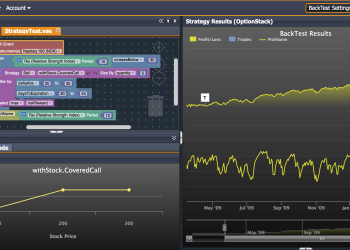What do you think about a career in cybersecurity? Because of its strong demand and rapid growth, cyber security offers high median pay, a wide range of career options, and a tough and fast-paced work environment.
Protecting businesses’ digital assets and intelligence from security breaches is an exciting prospect for anyone interested in cybersecurity, but if you’re not sure if you’re qualified for the position, it’s crucial to complete your study on the sector, understand what typical cybersecurity jobs look like, and learn more about the skills needed for cybersecurity employment. Getting cyber security analyst certification will add to your credibility. Enroll in cyber security training online to get started.
You’ll need an array of technical, professional, and functional skills in addition to the cybersecurity expertise and soft skills employers are looking for to distinguish yourself apart from the competition. So you can see what it takes to work in the sector, we’ve produced a list of essential cybersecurity abilities.
Technical knowledge –
You should have a solid technical background
When it comes to cybersecurity abilities, everyone instantly thinks of technological skills. It’s true that technical skills are only one piece of the jigsaw, but they are the most important and the foundation for our capacity to work and succeed in cybersecurity, regardless of whether we like it or not. Technical abilities can be divided into two subcategories: general and specialized skills.
Practical, hands-on technical skills are most important because they allow us to perform the job or complete the task at hand. “Experience” is a section of the job description that we always pay attention to. If you have the capacity to configure a network, penetration test, or create a firewall, then you have this practical technical expertise. Because of the increasing variety of security risks, software programs, and technology platforms, the precise abilities required in this field vary widely from one job to the next.
In terms of technical knowledge, the second subcategory is conceptual knowledge. In this category, you’ll find topics like understanding the port numbers of various protocols or OSI model layers, or the ability to use a subnet as examples of technical knowledge. Knowledge like this is useful for your job but would bore most people if they were told about it. A very significant base of information that we need when we are working in the field that is dry and boring.
Spending time every day reading or learning something relating to your field of cybersecurity is the most effective approach to acquire this conceptual and technical knowledge. They nearly always originate from our educational endeavors, whether it be self-study and reading or information we learn in a cyber security certifications class.
Logical reasoning and troubleshooting
Problem-solving ability is perhaps the most sought-after technical skill among employers, but it is also the most difficult to acquire because it requires a lot of time and experience. You will be successful at cybersecurity if you have the capacity to think logically about cybersecurity issues, diagnose problems and implement solutions in addition to your technical understanding from skill #1. Work on applying answers logically when challenges emerge, and you’ll be well on your way to developing this logical reasoning skill. Don’t cause any more difficulties.
An aptitude for acquiring knowledge by doing research and learning new things
In cybersecurity, your capacity to be inventive and to learn new material regularly is crucial. To be successful, you must be constantly acquiring new skills and knowledge. Cybersecurity advances so swiftly, and technology is discarded so quickly, that it’s no surprise. You’ll need to learn how to keep up and know where to go to obtain new information quickly when you need it if you want to succeed in this field.
You can develop research and learning skills by developing a daily study routine. If you’re curious about an issue or a new technology, you’ll naturally want to locate the solution. Your curiosity and desire to learn will serve you well in your cybersecurity career.
Soft Skills –
Self-motivation and the ability to work autonomously
Most entry-level and intermediate-level cybersecurity positions don’t spend a lot of time in meetings. You’ll work in a team, although most cybersecurity work is done individually. Paying you is based on how well you can solve problems and complete tasks on your own. Since these efforts are generally taken on by one person, being self-motivated is essential. Having the ability to work autonomously, being self-motivated, and being trusted while doing so are all qualities that a supervisor is looking for in an employee.
A good understanding of how to communicate with customers
It’s important to remember that the work you produce reflects both you and your employer, and every employer has clients. As for interacting with others, it is inevitable whether you like it or not. It could be a client, a vendor, a manager, or a boss. The ability to interact effectively with non-technical people, as well as strong customer service, will play a major role in how far you can go in your career.
Documentation and written communication
To be successful in the field of cybersecurity, you’ll need to write down and document all you’ve accomplished. As a result, you’ll be able to recall what you’ve done and your coworkers will be able to tell what you’ve done. Also, it’s a tool for us to communicate with our clients. Thanks to technology, this skill may be learned by anyone, regardless of their background. If you want someone else to understand what you’ve done, you should write with clarity, directness, and detail.
Wrapping up
While some of the abilities described above should come naturally to you – such as an aptitude for analytical thinking and technology – others will require additional training or schooling. It’s a good idea to start with a certificate or degree in cybersecurity, depending on your background. They’ll give you a solid foundation in the principles of cybersecurity as well as an overview of security across a variety of platforms. Get cyber security training certification to get started with your journey.

















